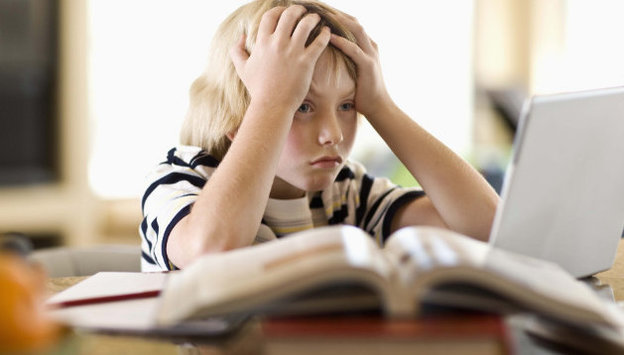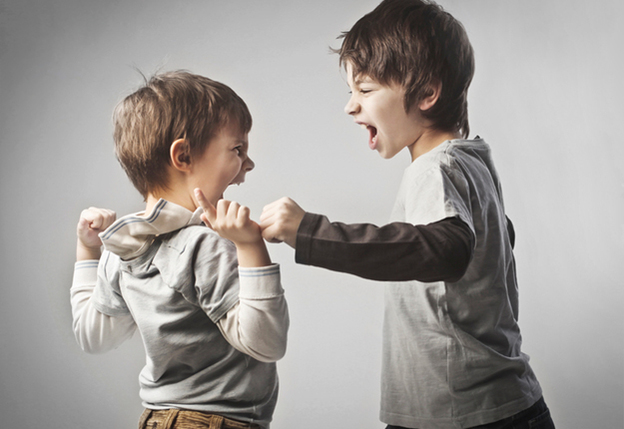SingaporeMotherhood | Parenting
October 2015
Anger Management for Children
You have probably seen the 2003 Hollywood flick, “Anger Management”, starring Adam Sandler and Jack Nicholson. The plot revolved around adults. Slightly more than a decade on, anger management is no longer an issue that concerns only the grown-ups. Given the pressure placed on children by their parents to excel in both academics and extra-curricular activities, it should come as no surprise that our young ones have also come to require anger management lessons.
[banner][/banner]
A significant proportion of children these days are becoming highly short tempered and unable to deal with minor predicaments, whether at school or at home. Ms. Evelyn Khong, Principal Consultant of Family Central, a service run by Fei Yue Community Services, shares with us how parents can handle their children who cannot cope with their emotions in a rational manner.
Why All The Rage?
Ms. Khong agrees that there is a considerable amount of stress placed on children these days by their parents, and that this could possibly be a trigger factor for children not being able to deal with their emotions well.
She explains, “Parents are stressed and may not know how to deal with it. They then pass their stress down to their kids through yelling, screaming, scolding or shouting. As such, kids also do not have a model of managing stress, seeing how their parents blow their tops. Therefore, they are also likely to be unable to deal with their emotions.”
Are children becoming increasingly irritable or short tempered these days? Ms. Khong says that not all kids are short tempered, although she has dealt with quite a number of them. Possible factors which can contribute to children hosting such temperaments include parents having unclear or unrealistic expectations of them. Parents also tend to want things done quickly and preferably immediately. We live in the “instant age” – which translates to “Hurry up and get it done now.” When such expectations cannot be met, parents may get angry, upset and impatient. Other contributing factors could be that the child is unwell, worried or tired.
Warning Signs to Look Out For
Warning signs comprise of emotional, psychological as well as physical symptoms. These include being very withdrawn and unusually quiet for long periods of time; not being their regular noisy self. Aggression, hitting out at others and screaming are some of the physical signs that parents should be aware of.
Helping Yourself and Your Child
Parents need to model how they themselves manage their own emotions in constructive ways, hence simultaneously teaching their children to do likewise. Emotions are part and parcel of life – there is nothing wrong with expressing them. It is when we act, react and overreact, in ways that are destructive that they become detrimental to ourselves as well as others. Cool down and calm yourself first. “Take a deep breath, have a cup of coffee or tea, recharge for a bit if you are very stressed out. Then, find a suitable time and place, preferably with no distractions, and talk to your child. Listen. Listen to what the struggle in his heart is. Help him to carry his emotional burden,” Ms. Khong elaborates.
Steps to Ease Stress on Your Child
To truly understand their children, parents need to bring themselves down to the level their children are at emotionally and psychologically, and delve into their world. Spend some time with them to understand their world, the changes, challenges and the pressures they are facing these days.
Take some time off and bring them outdoors. Identify their strengths and help them to build on them. Ms. Khong advises parents not to compare their children with their counterparts. She explains, “The idea behind comparing is to motivate, but on most occasions, the child sees the shame rather than the motivation. It’s about how you put the message across to them; not just what you say but how you say it.” Parents can also turn to taking up educational courses regarding family life and parenting.
When it comes to dealing with particularly temperamental or moody children, Ms. Khong states that it would be a good idea to first bring them out to an environment in which they find themselves being more relaxed. Following that, parents can start talking to them. They could even try making conversation with them by talking about their favourite toys or games. Participating in an activity that they like, with them, will allow parents to affirm and encourage the plus points in them.
Parents who often find themselves having to deal with a highly short tempered child can resort to a simple method which utilises coloured cards. Create a set of red, amber and green coloured cards. In a scenario charged with negative emotions, instruct your child to hold up the red coloured card. This would signify that he or she is very angry and grants them a time-out of ten minutes to calm down. Get them to hold up the amber coloured card when they have cooled down slightly, and consequently, the green coloured card when they are ready to converse with you. Ms. Khong explains that in order for parents to teach and for children to learn, both parties must be calm and composed.
Inside The Mind of A Child
Ms. Khong recounts one of her personal experiences from having dealt with children who have been taught how to manage their anger.
“We asked the kids to tell us what they do when they are angry. Answers from them were: hitting their sibling, screaming, yelling, fighting, throwing things, burning the house, walking away, and sleeping. Then we got the kids to comment on the aftermath of their actions. There was a nine year old boy who said that he had broken a table, and that it was not good because he damaged property. Interestingly, he added that he had to pay a lot of money. We thought that he had to buy a new table but his answer was that he had to take out money from his savings to pay the doctor for treatment for his injuries. That was something that hurt him. So, he learnt that it wasn’t worth it to show anger in destructive ways.”
A child’s mind is a beautiful mind. All it requires is some love, care and steering in the right path to make it a great mind.
For more information on Family Central and the services it offers, click here.
Alternatively, visit the new Families for Life website, which includes new features and content to provide families with a 365-day guide to enriching family life.
All content from this article, including images, cannot be reproduced without credits or written permission from SingaporeMotherhood.
Follow us on Facebook, Instagram, and Telegram for the latest article and promotion updates.







